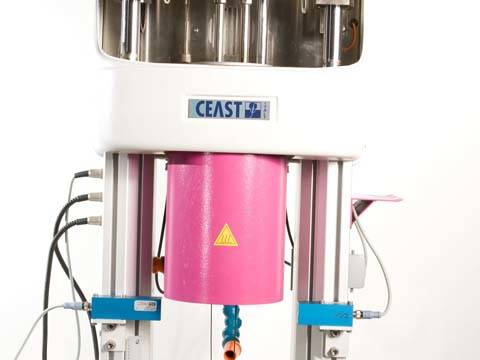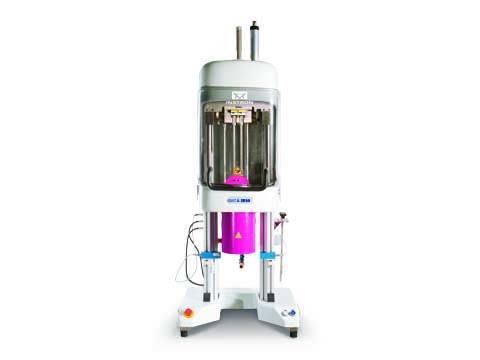In the process of Injection Moulding, significant failures can occur even if mould filling has been successfully executed. This is because contraction of the plastic product upon cooling can introduce residual stresses or even failure or warping of the part. ISO 17744 helps the mould designer to mitigate against this risk and minimize failure opportunities by predicting the volume shrinkage of the melt between different conditions. The test is performed by enclosing the specimen in a high-pressure device with temperature and volume control, for example a capillary rheometer with suitable fixtures to plug the die exit. Then a variety of conditions can be applied, and a map of pressure, volume and temperature (pvT diagram) can be generated. Typically, one of these variables is held constant throughout testing.
This test can be performed using the CEAST Smart Rheo series of capillary rheometers. By simply re-configuring the system with some basic accessories, the rheometer becomes an invaluable tool for building a pvT diagram. And then, just as simply, the rheometer can be re-configured for standard testing. Systems are available in 20 kN (SR20) and 50 kN (SR50) models, and testing is available up to 260 °C with the basic fixtures, but special fixtures are available for higher temperatures. The test procedure is isothermal, i.e. a first pre-defined temperature is reached and a series of pressures applied (recording the volume changes), then temperature is automatically changed to the next set point, and so on. The software records all the relevant data and generates comprehensive graphs and tables to summarize the results.

